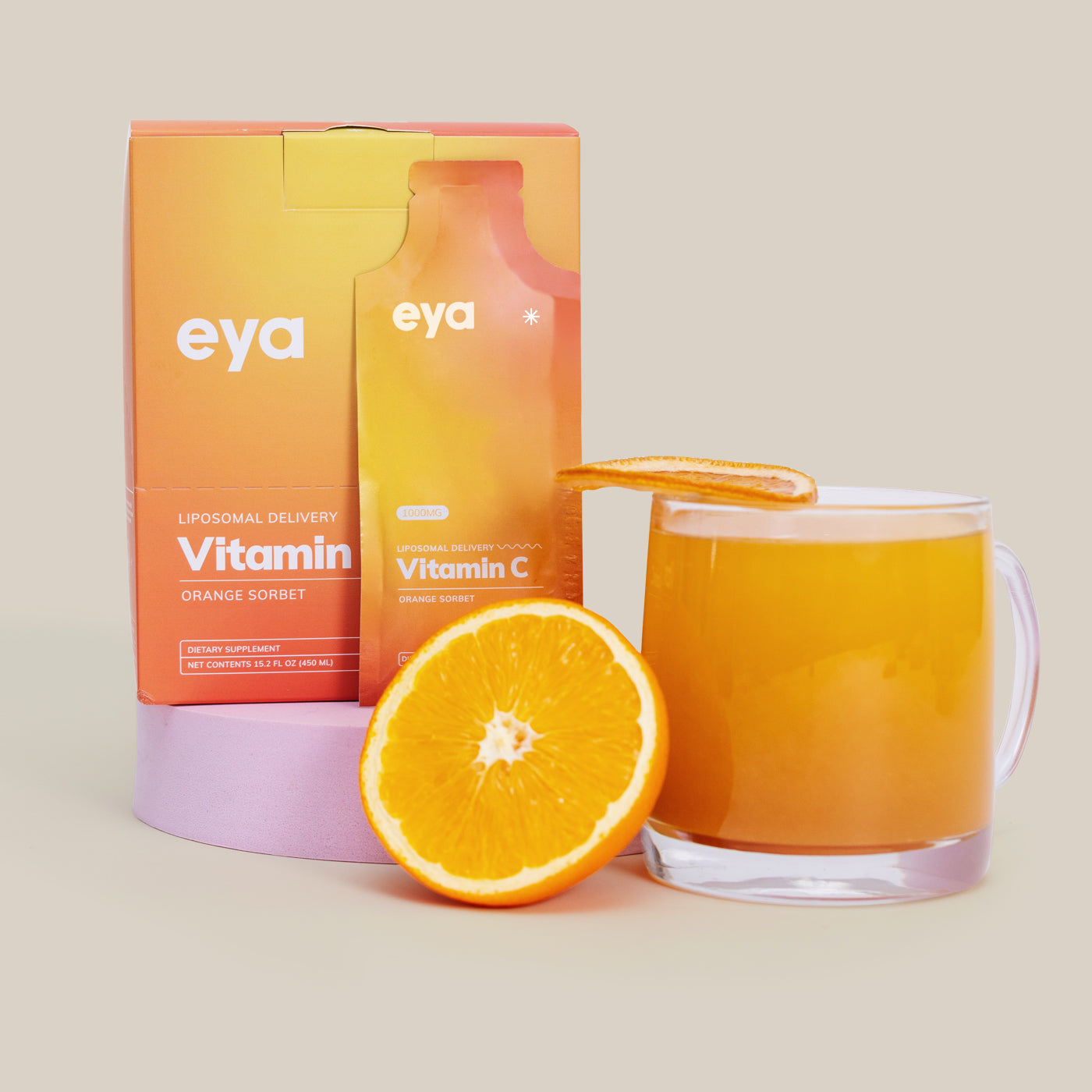Liposomal Technology - How Are Liposomal Supplements Made
Since medical researchers first developed liposomal technology, scientists have explored a wide range of applications for this advanced technology, drastically altering the supplement landscape.
In recent years, these small fat-soluble vesicles have changed the delivery of vitamins and pharmaceuticals, providing an alternate method with higher absorption rates and effectiveness. However, several people remain unsure about the specifics of liposomal technology. Let’s find out how are liposomal supplements made.
Key Takeaways
- Liposomal technology enhances the bioavailability of supplements by encapsulating active ingredients in lipid layers.
- Understanding liposomes is crucial in grasping how liposomal technology works in supplement production.
- Careful selection of lipid sources is essential for the successful creation of liposomal supplements.
- The process of liposomal encapsulation plays a significant role in ensuring the stability and effectiveness of liposomal supplements.
- Bioavailability studies have shown the superiority of liposomal delivery in improving the absorption and utilization of nutrients.
The Science Behind Liposomal Technology
What are Liposomes?
Liposomes are tiny spherical vesicles that have been a subject of extensive research and development in the field of drug delivery. They are composed of phospholipid bilayers, which are similar to the cell membranes found in the human body. This structural similarity allows liposomes to merge with cellular membranes, facilitating the delivery of their contents directly into cells.
The core of a liposome can encapsulate both hydrophilic (water-soluble) and hydrophobic (fat-soluble) compounds, making them versatile carriers for a variety of substances. The encapsulation protects the active ingredients from degradation in the digestive system and can improve their systemic circulation.
Understanding the properties and behavior of liposomes is crucial for optimizing their design for specific applications, including the delivery of dietary supplements.
Liposomal Encapsulation Process
The liposomal encapsulation process is a sophisticated method that involves trapping active ingredients within liposomes. This process can be broken down into several key steps:
- Preparation of Lipids: Initially, lipids are dissolved in an alcohol or water solution to form micelles, which are the precursors to liposomes.
- Active Ingredient Incorporation: The active ingredient, which can be a drug, vitamin, or other nutritional supplement, is then added to the solution.
- Formation of Liposomes: Through techniques such as sonication or extrusion, micelles are transformed into liposomes, with the active ingredient encapsulated within.
- Purification: The resulting mixture is then purified to remove any unencapsulated ingredients and to isolate the liposomes.
- Quality Control: Finally, the liposomes are subjected to rigorous quality control tests to ensure their size, purity, and encapsulation efficiency meet the required standards.
This encapsulation process is crucial for enhancing the stability and bioavailability of the active ingredients. By protecting the ingredients from degradation in the digestive system, liposomes facilitate a more efficient delivery to the cells where they are needed.
Components of Liposomal Supplement Production
Lipid Sources
The selection of lipid sources is a critical step in the production of liposomal supplements. These lipids form the bilayer structure of liposomes, which are essential for encapsulating the active ingredients. High-quality lipids not only ensure the stability of the liposome but also affect its ability to merge with cell membranes for effective delivery.
When it comes to choosing lipid sources think about:
- Purity: Lipids must be of high purity to prevent potential contaminants that could destabilize the liposome or be harmful to the consumer.
- Phospholipid Content: Phospholipids are the primary component of the liposomal bilayer, with phosphatidylcholine being a commonly used phospholipid due to its biocompatibility.
- Source Origin: Lipids can be derived from various sources, including soy, sunflower, or egg. The choice of source may be influenced by potential allergens or dietary restrictions.
- Chain Length and Saturation: The fatty acid chain length and degree of saturation influence the fluidity and permeability of the liposomal membrane, which in turn affects the release and delivery of the active ingredients.
Active Ingredients Selection
The selection of active ingredients for liposomal supplements is a critical step that determines the efficacy and target of the supplement. These active ingredients can range from vitamins and minerals to herbal extracts and pharmaceutical drugs.
- Purity: The purity of the active ingredient is paramount. Impurities can affect the stability of the liposome and potentially cause adverse effects.
- Solubility: The ingredient must be soluble in the liposome's internal aqueous phase or compatible with the lipid bilayer.
- Stability: Active ingredients should be stable within the liposome to ensure they remain effective until they reach their target.
The process involves rigorous testing to ensure compatibility with the liposomal structure and to maintain the integrity of the active ingredient. Once selected, these ingredients are then prepared for encapsulation, a process that requires precision to achieve the desired concentration and dosage within each liposome.
Benefits of Liposomal Delivery
Liposomal delivery systems offer a myriad of benefits that enhance the effectiveness of supplements. One of the primary advantages is the improved bioavailability of the active ingredients. By encapsulating these compounds in liposomes, they are protected from degradation in the digestive system, ensuring that a higher percentage reaches the bloodstream.
Another significant benefit is the targeted delivery capability. Liposomes can be designed to release their contents at specific sites within the body, which can be particularly useful for drugs that are intended to act on certain tissues or organs. This precision reduces the risk of side effects and increases the therapeutic efficacy of the supplement.
Furthermore, liposomal supplements often require lower dosages to achieve the desired effect compared to traditional forms. This is because the enhanced delivery method allows for more of the active ingredient to be utilized by the body. The list of benefits includes:
- Enhanced absorption and bioavailability
- Reduced gastrointestinal discomfort
- Increased circulation time of the active ingredient
- Potential for dose reduction
- Improved stability of the encapsulated compound
Bioavailability Studies
Bioavailability studies are critical in demonstrating the efficacy of liposomal supplements. These studies compare the absorption rates of nutrients in liposomal form against traditional supplement forms. Key findings from such research include:
- Enhanced absorption: Liposomal supplements often show significantly higher absorption rates, ensuring more of the active ingredient reaches the bloodstream.
- Rapid uptake: The encapsulated nutrients are typically absorbed more quickly, leading to faster onset of benefits.
- Sustained release: Some liposomal formulations are designed to release their payload gradually, providing a longer-lasting effect.
Researchers use various methodologies to assess bioavailability, including blood plasma concentration measurements and comparative clinical trials. The results not only validate the liposomal approach but also guide further improvements in supplement formulation. As the body of evidence grows, liposomal supplements continue to gain recognition for their superior delivery system.
The Future of Liposomal Technology
Liposomal technology has revolutionized the way supplements are delivered and absorbed by the body. The process of creating liposomal supplements involves encapsulating nutrients in lipid bilayers, enhancing their bioavailability and efficacy. This innovative technology offers a promising solution for improving nutrient absorption and overall health.
As research and development in this field continue to advance, we can expect to see even more benefits and applications of liposomal supplements in the future.

